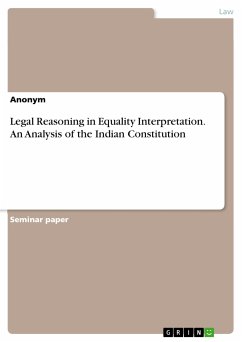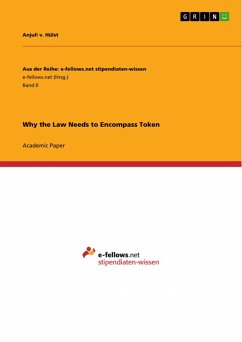Essay from the year 2015 in the subject Law - Philosophy, History and Sociology of Law, grade: A*, University of London, course: LLB (Hons), language: English, abstract: The purpose of this research is to discuss the meaning of representative judiciary and its importance to ensure public confidence and establish rule of law, independence of judiciary, provisions of Constitutional Reform Act 2005, function, and composition of judicial appointment commission, diversity statistics and general overview, key changes to attaining diversified judiciary to ensure equality and so on. This report concentrates on the position of Bangladesh in this regard. The representative judiciary concept endorses a form of judicial appointment where judges would be selected from diverse races, gender, ethnicity, minority groups, and other deprived segments of society to reflect thoughts of common people to ensure that judges enforce neutrality and unbiased view, devoid of fear and favouritism in order to uphold rule of law rather than rule of people. Before 2005, only small numbers of judges appointed were female or ethnic minorities due to secretive selection process, personal recommendations from existing judges, unlimited power and discretion of the Lord Chancellor, no advertisements for vacancies, and so on. The Constitutional Reform Act 2005 has introduced a new appointment process of the judges and established a Judicial Appointment Commission (JAC) with intent to appoint judges solely based on merit and uphold the continued independence of the judiciary. Consequently, representation of women and other minority groups increased gradually in the UK judiciary. This report compares the appointment procedure between Bangladesh Judicial Service Commission (BJSC) and Judicial Appointment Commission (JAC) to assess the extent to which the UK is able to attain representative judicial system as a well-developed country.
Dieser Download kann aus rechtlichen Gründen nur mit Rechnungsadresse in A, B, BG, CY, CZ, D, DK, EW, E, FIN, F, GR, HR, H, IRL, I, LT, L, LR, M, NL, PL, P, R, S, SLO, SK ausgeliefert werden.









